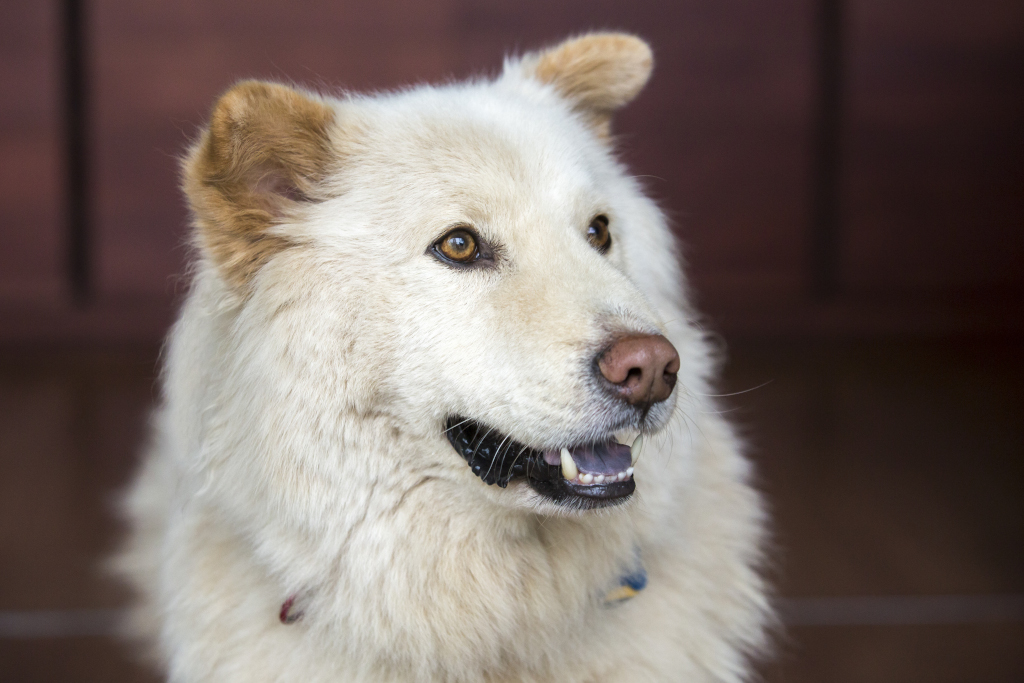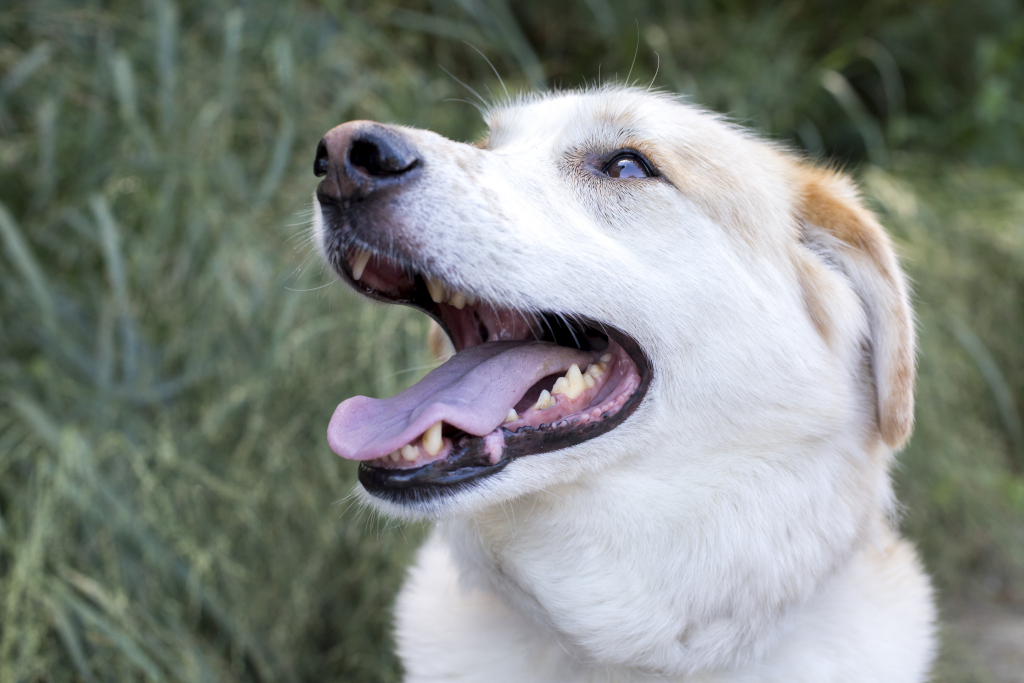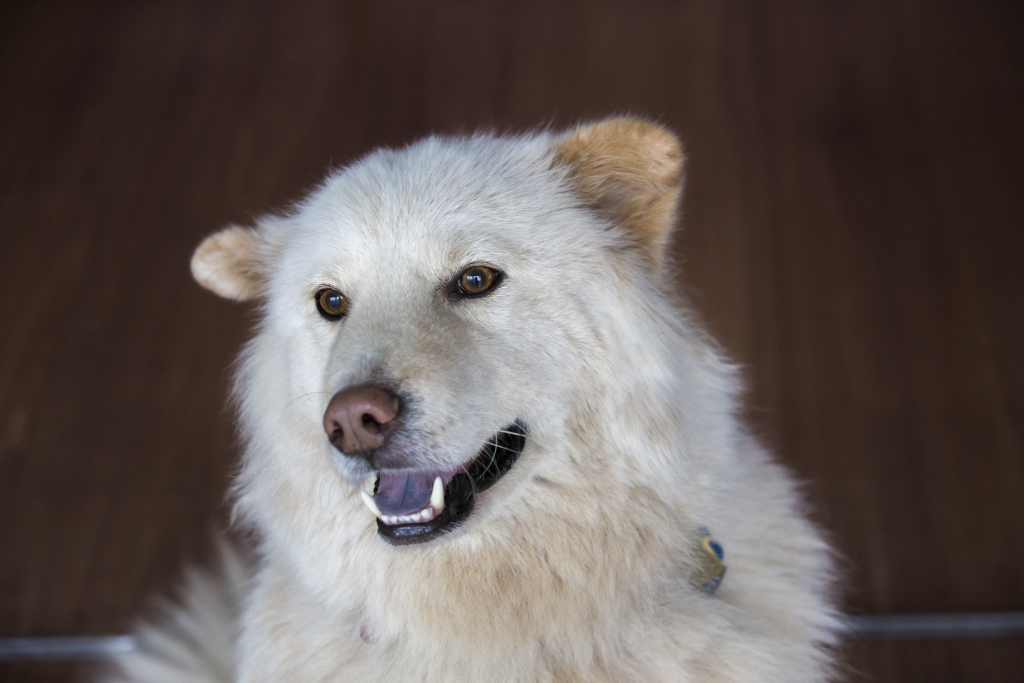Looking for a new addition to your pack? Meet the Golden Shepherd, a beautiful hybrid breed that combines the best of both worlds when it comes to appearance and personality.
With their keen intelligence, loyalty, and playful spirit, Golden Shepherds are hard to resist. In fact, they’re rapidly gaining popularity and becoming one of the most sought-after mixed breeds.
Golden Shepherds are a cross between two of the most popular dog breeds, the German Shepherd and the Golden Retriever, this designer breed is a perfect blend of the two dogs and has inherited many desirable traits from their parents, making them stand out in more ways than one.
In this post, we’ll explore everything from their unique traits to the best ways to care for them, so keep reading to learn more about these gorgeous hybrid dogs.
| An Overview of Golden Shepherd Breed Characteristics | |
|---|---|
| Weight | 50 - 90 pounds |
| Height | 21 - 26 inches |
| Life Expectancy | 10 - 14 years |
| Coat Type | Smooth/ rough, dense double coat |
| Colors | Solid or multi-colored. The color can include black and tan, golden, dark golden, black, white, cream, white, gold, or brown. |
| Breed Size | Large-sized dogs |
| Breed Group | Mixed breed |
| Affectionate With Family | 5.0 out of 5.0 stars5.0 |
| Good With Children | 5.0 out of 5.0 stars5.0 |
| Good With Other Dogs | 4.0 out of 5.0 stars4.0 |
| Friendly Towards Strangers | 4.0 out of 5.0 stars4.0 |
| Breed Health | 3.0 out of 5.0 stars3.0 |
| Shedding Amount | 4.0 out of 5.0 stars4.0 |
| Grooming Needs | 3.0 out of 5.0 stars3.0 |
| Adaptability | 4.0 out of 5.0 stars4.0 |
| Trainability | 4.0 out of 5.0 stars4.0 |
| Prey Drive | 3.0 out of 5.0 stars3.0 |
| Playfulness | 5.0 out of 5.0 stars5.0 |
| Protective Nature | 4.0 out of 5.0 stars4.0 |
| Energy Level | 5.0 out of 5.0 stars5.0 |
| Apartment Living | 2.0 out of 5.0 stars2.0 |
| Good for First-Time Dog Owners | 3.0 out of 5.0 stars3.0 |
| Tolerate Being Left Alone | 1.0 out of 5.0 stars1.0 |
| Cold Tolerance | 4.0 out of 5.0 stars4.0 |
| Hot Tolerance | 3.0 out of 5.0 stars3.0 |
| Tendency to Drool | 2.0 out of 5.0 stars2.0 |
| Tendency to Bark | 2.0 out of 5.0 stars2.0 |
| Tendency to Snore | 2.0 out of 5.0 stars2.0 |
| Tendency to Dig | 3.0 out of 5.0 stars3.0 |
| Exercise Needs | 5.0 out of 5.0 stars5.0 |
| Mental Stimulation Needs | 5.0 out of 5.0 stars5.0 |
| Puppy Costs | 2.0 out of 5.0 stars2.0 |

Crossing Two Popular Dog Breeds: German Shepherd & Golden Retriever
Although the term “designer dog” is a recent addition to the vocabulary, crossbreeding has been practiced for centuries. In recent decades, however, this practice has become increasingly popular, providing dog lovers with a wider array of options when choosing the perfect family pet.
One of the benefits of crossbreeding is that it increases the gene pool of dogs. This has been scientifically proven to lead to healthier and more robust canines, resulting in fewer health issues.
Another reason it is becoming increasingly popular to “customize” dog breeds by crossbreeding is to create a unique combination of traits and characteristics, hoping the pups will inherit the best qualities from their parents.
However, it’s crucial to remember that certain traits are genetically inherited and cannot be trained. This means that although hybrid breeds like the Golden Shepherd offer the potential for exceptional temperament, there is also a risk of unpredictable behavior due to their mixed genetics.
And to understand more about the breed and their temperaments, let’s take a closer look at their parents.
Golden Retriever
The Scottish Highlands in the 19th century was home to the creation of the Golden Retriever, which Lord Tweedmouth I developed.
They were initially bred with the primary purpose of retrieving shot waterfowl. Their gentle mouths are perfectly designed for this job, allowing them to fetch ducks and other game without causing any damage to the animal. These water-loving dogs are also exceptional swimmers, making them well-suited for their role as hunting companions.
With their high intelligence and natural desire to please, Golden Retrievers have gained popularity as working dogs since the 1970s.
In addition, their inherently kind nature and understanding of how to behave around people make them ideal for various roles, including search and rescue and disability assistance. In fact, it’s not uncommon to see these loyal companions putting their skills to use in these fields, showcasing their versatility beyond just being loving family pets.
And since it was officially recognized by the American Kennel Club (AKC) in 1925, the Golden Retriever has become one of the most beloved dog breeds in the world. Originally bred as a hunting dog, today, you are more likely to find a Golden Retriever in a family household, where they make wonderful family pets.
With their friendly nature and eagerness to please, it’s no surprise that the popularity of Golden Retrievers has soared over the years, topping the AKC’s list of the most popular breeds in the United States for over a decade.
These intelligent dogs are quick learners and adapt well to various lifestyles, making them an excellent choice for families or anyone seeking a loyal, friendly, affectionate, intelligent furry friend.
You May Also Like: Golden Retriever Puppy Price Guide: How Much Do They Cost?
German Shepherd
The 19th century saw the creation of a remarkable herding dog breed in Germany, which is known as German Shepherds or Alsatians. They have a long history in America, dating back well before the World Wars. However, it wasn’t until after these events that they truly gained popularity in the United States.
Interestingly, American breeders tended to prioritize appearance over adherence to breed standards, leading to the development of various strains of the German Shepherd, such as the King Shepherd and Shiloh Shepherd. These variations were an attempt to recreate a breed more similar to the original German Shepherd and to breed out certain health issues commonly seen in some lines.
The German Shepherd is perhaps the most iconic breed associated with protection services, thanks to their intelligence, toughness, and fierce loyalty. Today, these pups remain one of the most beloved breeds in America, valued for their bravery, versatility, and devoted companionship.
Although there are many different types of German Shepherds, they all share some common characteristics. They are hardworking, confident, smart, courageous, and highly adaptable. And combined with their natural protectiveness, these qualities make them an ideal choice for families seeking a furry friend with both brains and brawn.
You May Also Like: German Shepherd Puppy Price Guide: How Much Are They?
Golden Shepherd History
Though the Golden Shepherd mixed breed might have developed in the past, it wasn’t until 2009 that they started to garner interest and appreciation.
The motivation behind creating this mixed breed was to merge the boldness, swiftness, and attentiveness of the German Shepherd with the affable character of the Golden Retriever, aspiring to create the perfect family companion and guardian.
While no kennel club has granted official recognition to this breed, the International Designer Canine Registry (IDCR) acknowledges its existence, and proud owners and dedicated breeders have been able to register their cherished canine companions within this esteemed record.
Considering that their parent breeds consistently rank in the top 5 in the AKC popularity rankings, it’s clear that this mixed pup is destined for greatness. So, let’s dive deeper into understanding this extraordinary canine and assist you in determining if this remarkable dog could be your perfect furry companion.
Size & Appearance
The Golden Shepherd is a large dog breed, typically standing between 21 and 26 inches at the shoulders. With a weight ranging from 50 to 90 pounds, this mixed breed boasts a robust build, deep chest, and sturdy frame, and their back should be level rather than sloping like that of the German Shepherd Dog.
The Golden Retriever German Shepherd mix typically flaunts a more rugged appearance than its Golden Retriever parent. And you’ll expect to see either the erect, pointed ears of the German Shepherd or the drooping ears of the Golden Retriever.
While the Golden Shepherd’s muzzle is typically long, its shape may vary from a German Shepherd’s pointed appearance to a Golden Retriever’s more rounded feature.

Color, Coats, & Markings
The Golden Shepherd sports a double-layered coat that ranges from medium to long in length and is thick and dense. If their German Shepherd parent boasts a long-haired coat, expect the Golden Shepherd’s fur to be similarly lengthy.
In addition, they are a medium to heavy shedder, and given their abundant double coat, this breed is not considered hypoallergenic and be prepared for a fair amount of dog hair around the house.
In terms of color, the Golden Shepherd’s fur can include black and tan, golden, dark golden, black, white, cream, white, gold, or brown. Their color can be solid or a combination of multiple shades, depending on which of their parents it takes after. Additionally, it is possible for Golden Shepherds to inherit facial markings from their German Shepherd parent.
Temperament & Personality
The Golden Retriever German Shepherd mix is a playful, loyal, and outgoing canine that thrives on being the center of family activities. This friendly furball bonds with all household members, not solely fixating on its handler like its German Shepherd parent.
These pups are also amicable towards strangers but possess the wariness of their German Shepherd parent, which makes them better watchdogs than their Golden Retriever parent. And rest assured, if faced with danger, this loyal companion won’t hesitate to defend their beloved family.
Brimming with energy and enthusiasm, the Golden Shepherd can exhibit destructive behaviors if left unattended for extended periods or when bored. To keep this lively pup content, ensure their exercise requirements are met.
And thanks to the inherited investigative nature of their German Shepherd parent, these curious canines might just discover a way to escape from fenced areas if even the tiniest openings are present. So, keep your yard secure and make sure these escape artists aren’t successful in their mischievous schemes.
Note: Inheriting the sociable nature of their Golden Retriever parent and the unwavering loyalty of their German Shepherd lineage, the Golden Shepherd thrives on human companionship. They form profound bonds with their family, which can lead to severe separation anxiety when left alone. As such, it's best not to leave these devoted dogs unattended for long periods. If you regularly need to be away, the Golden Shepherd may not be the ideal canine companion for your lifestyle.
You May Also Like: Training Dogs To Stay In An Unfenced Yard
Living Needs
Owing to their large size and robust build, the Golden Shepherd is best suited for a home with access to a spacious yard. While they appreciate some downtime, they prefer spending ample time outdoors, breathing in the fresh air. Unfortunately, that also means they may not be well-suited for confined living spaces or apartments unless an exercise outlet is readily available.
Being double-coated means these pups can tolerate cold temperatures and don’t fare too well in extremely hot conditions due to their thick fur. So, for this reason, if you live in a hotter climate, ensure your Golden Shepherd has a cool and shady spot outdoors to relax during hot days.
Golden Shepherds will do well in households with multiple pets so long as they have been socialized from a young age and receive their fair share of affection. They are also great with children. However, always supervise their interactions with young children, as they may potentially topple kids over due to their size and strength.
You May Also Like: How Hot Is Too Hot For Dogs
Exercise Needs
Originating from a lineage of two hardworking breeds, Golden Shepherds inherit their strong work ethic from both their German Shepherd and Golden Retriever parents. As such, they require an abundance of exercise to satisfy their adventurous spirit.
They require a minimum of 60 minutes of daily exercise to stay content. And merely going for an hour-long walk won’t suffice. These intelligent dogs need intense and varied activities to keep them physically engaged.
There’s a good chance they’ll inherit their Golden Retriever parent’s affinity for water, so incorporating a dip in the local lake can be an excellent addition to their exercise routine. Accompanying their owner on a long jog through the woods, hiking through the park, or joining in on a bike ride is another way for these spirited canines to expend their energy and stay happy.
Owing to their high intelligence, Golden Shepherds require various mental challenges to keep them mentally engaged during the day. You can do this by providing them with training and teaching them new tricks. Interactive puzzles, stuffed Kongs, chew toys, and ball launchers are additional excellent options for keeping these clever canines mentally stimulated and entertained.
You May Also Like: How to Go Snowshoeing With Dogs: Tips for Winter Hikes

Training
The Golden Retriever German Shepherd mix is an exceptionally intelligent breed with a strong desire to please its owner, making them highly trainable dogs.
Golden Shepherds often respond better to belly rubs, food treats, praise, and toy rewards. So, employing reward-based training techniques for these eager-to-please canines is a better idea. This will ensure a successful and enjoyable learning experience for both the pooch and the owner.
Although Golden Shepherds are highly intelligent, they still require a firm and consistent owner to guide them. In fact, they’ll need someone who won’t let their training lapse and will persistently and consistently reinforce the lessons. Also, it’s essential to instruct all family members on the proper commands and hand signals to maintain consistency in training and prevent any confusion for the pup.
Additionally, it’s crucial to socialize them from an early age by introducing them to various people of different genders and sizes, as there’s a possibility they may inherit their German Shepherd parent’s protective nature.
Exposing them to new experiences and environments, such as taking them out in public or enrolling them in puppy classes during the early months, is also essential for preventing shyness and over-protectiveness from developing.
You May Also Like: Step-By-Step Guide to Teaching Your Dog Loose Leash Walking
Health
Golden Shepherds are generally healthy dogs, with an average life span of 10 to 14 years. However, as with all mixed-breed dogs, they can be prone to some of the same health conditions that their parents are susceptible to.
Some of the health concerns to look out for include:
- Allergies
- Cardiac issues
- Degenerative myelopathy
- Elbow and hip dysplasia
- Epilepsy
- Exocrine pancreatic insufficiency
- Eye conditions
- Gastric torsion
Hypothyroidism
Of course, that’s not to say that all Golden Shepherds will develop these health issues. However, it’s essential to be aware of them. This way, you can keep a close eye on your pup and seek early medical intervention if needed.
Keeping up with routine vet visits for check-ups and preventive measures will help ensure your Golden German Shepherd stays in top shape. Additionally, providing them with a healthy and balanced diet, ample exercise, mental stimulation, and keeping up with regular grooming needs will also aid in promoting their overall well-being.
You May Also Like: Why Won’t My Dog Sleep at Night?
Feeding & Nutritional Needs
On average, a Golden Shepherd requires about 3 cups of food daily, though this amount may vary depending on their activity level. Less active dogs may need a smaller quantity, while more energetic pups could require additional food.
When selecting food for your pup, choose one that’s of high quality and formulated for large breeds, as these formulas are specifically designed to meet their nutritional needs. It’s best to avoid cheap brands as they often contain low-grade ingredients, artificial colors, flavors, and preservatives that can cause long-term health problems.
And as with all breeds susceptible to bloating, it’s essential to feed your Golden Shepherd smaller meals throughout the day instead of one large meal and avoid exercising them right after eating.
You May Also Like: Why Won’t My Dog Eat?
Grooming
Golden Shepherds have medium-length fur that tends to shed moderately throughout the year, with more intensive shedding during spring and fall. So, brushing them regularly with a slicker brush is vital to prevent matting and keep the shedding under control. 2 to 3 times a week should suffice, though more frequent brushing may be required during heavy shedding seasons.
And unless they get excessively dirty during outdoor activities, a bath is only needed every 2 to 3 months, as over-bathing them can strip their coat of its natural oils and result in dry, dull coats and itchy skin. Ensure to use a gentle shampoo formulated for dogs and rinse them thoroughly to prevent residual shampoo from irritating their skin. Also, consider using dry shampoo between baths to help keep their coat clean and smelling fresh.
In addition to brushing and bathing, their nails should be trimmed regularly with either nail clippers or a grinder, as overly-long claws can cause discomfort. Generally, you’ll need to trim them every 2 to 4 weeks, but if they aren’t too active and don’t spend much time outdoors, more frequent trimmings may be necessary.
Also, be sure to check and clean their ears at least once every two weeks with a veterinarian-recommended ear cleaner to prevent ear infections. And lastly, their teeth should be brushed with a canine toothbrush and dog-safe toothpaste at least 2 to 3 times a week to ensure good oral health.
You May Also Like: Dog Paw Care and Maintenance Tips
Buying A Golden Retriever German Shepherd Mix From A Breeder
If you’ve decided to welcome a Golden Retriever German Shepherd mix into your home, ensure to obtain your pup from a reliable breeder, and you should expect to pay $800 and more for a Golden Shepherd puppy.
Responsible breeders can provide you with all the necessary information regarding the pup’s health, parentage, and temperament, be willing to answer any questions you may have and provide guidance on caring for your pup properly.
Take the time to visit the breeder in person and ensure that their facility is clean and hygienic, that the puppies are well-socialized, and get plenty of exercise, interaction, and playtime. If you encounter any red flags, look for another breeder.
It’s also essential to meet with the parents of the puppy you are interested in and a few other puppies in their litter. This will give you an idea of how your pup may turn out in terms of size, appearance, and temperament.
Avoid buying your pup from pet stores, puppy mills, or backyard breeders, as these pups are usually not well-socialized or bred responsibly and may suffer from medical issues later on.
Therefore, it’s vital to do your research and vet several Golden Shepherd breeders before deciding on one. You can check to see if they have any reviews online or ask for references from people who previously purchased puppies from them. It can also be helpful to ask friends or family members if they have any recommendations.
Adopting A German Shepherd Golden Retriever Mix From A Rescue or Shelter
If you’d rather adopt a Golden Retriever German Shepherd mix, you can contact your local shelters and rescues to see if they have any available. Or you can check online pet adoption sites, such as Petfinder or Adopt-a-Pet, to find a pup in need of a loving home.
Note that the adoption process may vary between shelters or rescues. In some cases, they may require a home visit to make sure that the home environment is suitable for the pup, as well as asking potential owners to fill out an application form and provide personal references and detailed information about their lifestyle and any other pets they may have or have had in the past.
The fees for adopting from a rescue or shelter will generally be lower than those from a breeder, but the cost varies depending on your location.
It’s also crucial to note that while this isn’t always the case, shelter and rescue pups may have had a difficult past and may need more attention and patience than pups from breeders. Also, they may have medical issues that can require additional veterinary care, so it’s essential to factor this into your decision-making process.
But ultimately, adopting a pup from a shelter or rescue is an incredibly rewarding experience, and you’ll be giving the pup a second chance at life!
Is A Golden Shepherd A Good Dog & Should You Get One?
The Golden Retriever German Shepherd mix is a loyal and affectionate dog that loves to be around its family. They are intelligent, gentle, and friendly, making them excellent companion dogs. They also have an eager-to-please nature and tend to bond strongly with their owners.
However, they are highly active and require plenty of exercise and mental stimulation to stay happy and healthy. If not given enough stimulation, they may suffer boredom and become destructive.
Overall, the German Shepherd Golden Retriever mix is an excellent family pet and a great choice for active owners who have the time and energy to provide them with the exercise, attention, and mental stimulation they need. If you think you can provide that, then a Golden Shepherd could be an ideal addition to your family!
Other Breeds to Explore:

